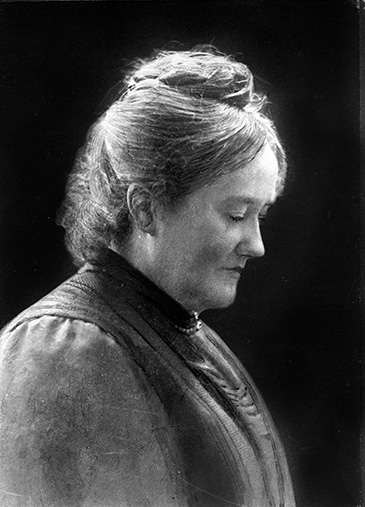Helene Lange
(born 1848 in Oldenburg – died 1930 in Berlin)
"Once the final goal of the women's movement has been achieved, there will be no leading gender, only leading personalities."*
Helene Lange fought for gender equality and dedicated her life to the fight for improved girls’ education. Helene Lange was an important women’s rights activist of the 19th and 20th centuries. She grew up as the daughter of a middle-class Oldenburg merchant family and was orphaned from the age of 16. From her youth, she became aware of the limits imposed on her in a male-dominated society. She therefore conceived the plan to become a teacher in Prussia in order to fight for equal educational and professional opportunities. The girls’ education intended for the “higher daughters” of the bourgeoisie was merely intended to prepare them for an existence as mother and wife. Young women from the lower classes, however, were completely denied access to secondary schools. A committed women’s rights activist, educator, teacher and later politician, Helene Lange believed in a fundamental difference in the nature of the female sex. Nevertheless, despite facing numerous obstacles, she sharply criticised the discrimination of women. Among other things, she wrote petitions to the Prussian government, founded the Allgemeiner deutscher Lehrerinnenverein (abbr.: ADLV. Eng.: General German Female Teachers’ Association), as well as the magazine Die Frau – Monatsschrift für das gesamte Frauenleben (Woman – Monthly Journal for All Aspects of Women’s Lives), which was in publication for several decades from the end of the 19th century. Finally, she became involved in the party Liberale Freisinnige Vereinigung (Liberal Free-minded Union). After the introduction of women’s suffrage in 1919, Helene Lange opened Hamburg’s first parliament as president by seniority. The fact that six women were able to complete their Abitur (equivalent to A levels) in Berlin for the first time in 1896 is largely due to her commitment.
*Lange, H., Kampfzeiten. Aufsätze und Reden aus vier Jahrhunderten (Essays and
Speeches from Four Centuries), Berlin 1928.

